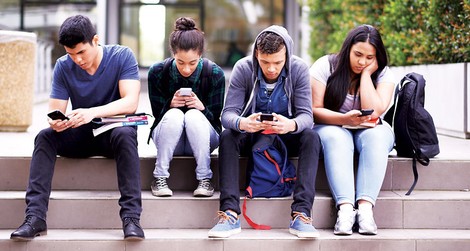Your podcast discovery platform
Curious minds select the most fascinating podcasts from around the world. Discover hand-piqd audio recommendations on your favorite topics.

piqer for: Global finds Health and Sanity Doing Good
Bangalore-based Rashmi Vasudeva's journalism has appeared in many Indian and international publications over the past decade. A features writer with over nine years of experience heading a health and fitness supplement in a mainstream Indian newspaper, her niche areas include health, wellness, fitness, food, nutrition and Indian classical Arts.
Her articles have appeared in various publications including Mint-Wall Street Journal, The Hindu, Deccan Herald (mainstream South Indian newspaper), Smart Life (Health magazine from the Malayala Manorama Group of publications), YourStory (India's media technology platform for entrepreneurs), Avantika (a noir arts and theatre magazine), ZDF (a German public broadcasting company) and others.
In 2006, she was awarded the British Print-Chevening scholarship to pursue a short-term course in new-age journalism at the University of Westminster, U.K. With a double Masters in Globalisation and Media Studies from Aarhus Universitet (Denmark), University of Amsterdam and Swansea University in Wales, U.K., she has also dabbled in academics, travel writing and socio-cultural studies. Mother to a frisky toddler, she hums 'wheels on the bus' while working and keeps a beady eye on the aforementioned toddler's antics.
Has Your Smartphone Rewired Your Brain?
My smartphone is an extension of my hand. And my toddler knows it too well. The other day, she demanded to see the images in my 'gool backup'. She meant my Google Photos backup, of course. Stumbling on this article during my midnight internet meandering, with her casual and instinctive understanding of technology still on my mind, I did a double take. How radically our behaviour, vocabulary, memories and even our postures have been changed by smartphones. And how effortlessly we are passing these changes on to our children, whether for good or bad.
Keeping the moral and ethical questions apart, this article tries to provide a tenable structure to the limited (and often contradictory) findings about how portable technology is altering our brains. It takes us through several recent studies that try (and often fail to) understand how our digital life is shaping us. The changes are so rapid and slippery that scientists are struggling to pin them down; they suspect and many lab studies have indeed indicated that constantly evolving technology is fundamentally rewiring the way we think. The fact that we can store our 'memories' on some cloud is encouraging our brains to 'offload' information, which certainly will have its own positives and drawbacks. GPS might be changing the way our brain looks at maps, and social interactions online are inducing new patterns of anxiety and depression.
That said, it is important to remember that every aspect of what we do alters our brains. Music training is known to reshape certain parts; even a good night's sleep changes the way we think. But scientists suspect digital technology has a much larger and stronger influence on the brain. Lab studies with their artificial settings alone cannot provide all the insights, and scientists are already playing catch up.
Evolutionary neurobiologist Leah Krubitzer flatly says these questions ought to have been asked in the last century. "We're kind of closing the barn doors after the horses got out."
